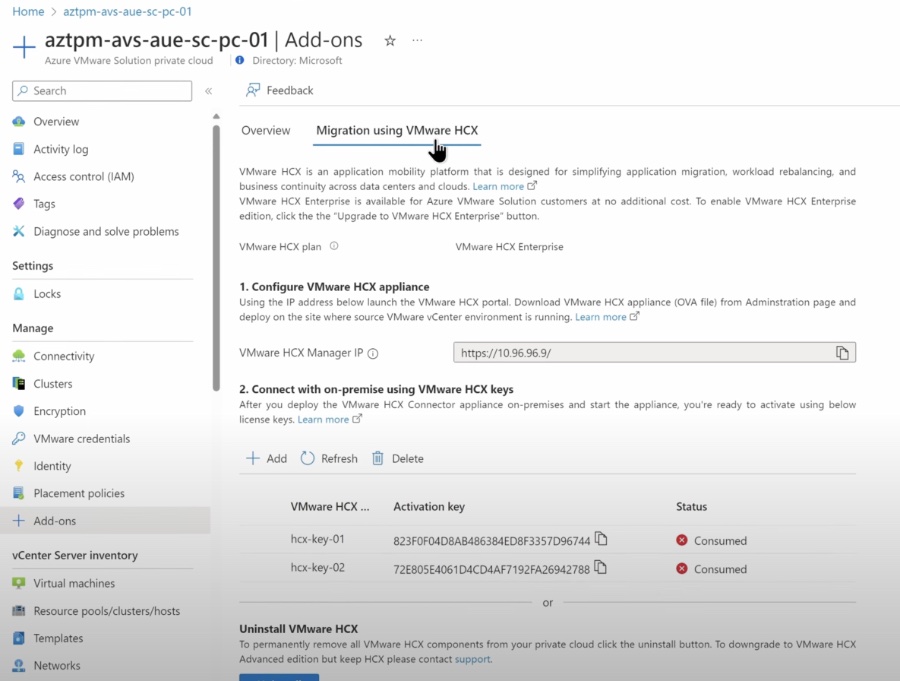- All of Microsoft
Comprehensive Guide to Azure VMware Solution (AVS)
Explore Azure VMware Solution: Migrate Workloads Seamlessly to Cloud with AVS Features & Benefits!
Key insights
Azure VMware Solution (AVS) is a comprehensive, fully managed private cloud service designed to facilitate seamless migration of VMware workloads to Microsoft Azure. This service enables businesses to leverage Azure's scalable infrastructure without the need to redesign their applications, providing an efficient path to cloud adoption.
- Deployment and Management: AVS is deployed atop Azure's infrastructure with VMware vSphere software, allowing for the migration of VMware workloads to Azure. It is managed by Microsoft, easing the operational burden on IT staff.
- Connectivity and Integration: AVS offers tight integration with Azure, enabling straightforward connectivity to Azure services like Azure Active Directory and Azure Storage, promoting a cohesive cloud environment.
- Benefits: Key advantages include seamless migration, hybrid cloud flexibility, and cost savings through reduced on-premises infrastructure expenses and Azure's pay-as-you-go model.
- Use Cases: AVS supports application modernization, data protection, disaster recovery, and edge computing, making it versatile for various business needs.
- Key Features: Features include VMware vSphere compatibility, scalability, security, and comprehensive management by Microsoft, which together provide a robust foundation for cloud migration and operation.

Exploring Azure VMware Solution Further
The introduction of Azure VMware Solution (AVS) has revolutionized how organizations approach cloud migration and management. By maintaining the familiar VMware environment while leveraging Azure's powerful cloud services, AVS offers a blend of innovation and reliability. This flexibility affords businesses the ability to run applications and workloads in the most efficient manner, whether in the cloud or on-premises, providing a bridge between traditional IT environments and modern cloud capabilities. As companies continue to seek solutions that offer both security and scalability, AVS stands out by integrating seamlessly into existing infrastructures, thereby accelerating digital transformation. The ability to connect with Azure's broad array of services further enhances its appeal, offering avenues for expanding capabilities and optimizing operations. With its array of benefits and applications, Azure VMware Solution represents a significant advancement in cloud technology, providing a pathway for businesses to modernize their IT landscape while ensuring continuity and efficiency.
The Azure VMware Solution (AVS) Deep Dive provides an insightful overview of how Azure VMware Solution operates, highlighting its key features and the process to migrate workloads to the cloud. This YouTube video by John Savill, a recognized MVP, starts with an introduction to the use of VMware and proceeds to discuss the detailed aspects of AVS, from its deployment, management, and connectivity options to various use cases and benefits. It's an essential guide for organizations looking to transition to the cloud seamlessly without disrupting their existing operations.
AVS is deployed on Azure's infrastructure, offering scalability and reliability. It allows seamless migration of VMware workloads into Azure, thanks to full VMware vSphere compatibility. Managed by Microsoft, AVS simplifies cloud transition by handling day-to-day private cloud operations, enabling IT staff to focus on other strategic areas. This synergy between VMware and Azure ensures that businesses can leverage cloud benefits without the need for extensive re-architecture of their existing applications and tools.
The video highlights AVS's tight integration with Azure, offering benefits like seamless migration, hybrid cloud flexibility, and cost-effectiveness. Organizations can extend their on-premises VMware environment to the cloud, allowing for operational flexibility and reduced infrastructure costs. Furthermore, AVS supports application modernization, disaster recovery, and edge computing, making it a versatile solution for various business needs.
Key features of AVS include VMware vSphere compatibility, ensuring that existing VMware workloads can run without any modifications. It also emphasizes scalability, security, and a managed service model, which reduces the complexity involved in cloud infrastructure management. By combining these features, AVS presents a robust solution for businesses aiming to modernize their IT environment and achieve greater operational efficiency.
In conclusion, the Azure VMware Solution offers a comprehensive path for organizations to migrate and manage their VMware workloads in Azure. Its seamless integration with Azure services, combined with the flexibility, cost savings, and security it provides, makes AVS a compelling choice for businesses looking to transition to the cloud. This deep dive into AVS underscores its potential to facilitate business growth and operational resilience in a cloud-centric world.
Azure VMware Solution Explained
Azure VMware Solution (AVS) allows organizations to migrate their existing VMware workloads to the cloud seamlessly. By deploying on Azure infrastructure, it offers a scalable and reliable platform without the need to re-architect applications. Managed by Microsoft, it alleviates daily operational burdens, allowing IT staff to concentrate on other priorities.
- Seamless migration of VMware workloads to Azure is facilitated, avoiding the need for re-architecting applications.
- Hybrid cloud flexibility is provided, extending on-premises VMware environments into the cloud.
- Cost-effectiveness is achieved through reduced on-premises infrastructure costs and Azure's pay-as-you-go model.
AVS serves various use cases such as application modernization, data protection and disaster recovery, and edge computing. It's fully compatible with VMware vSphere, offers high scalability, security based on Azure's infrastructure, and Microsoft's management.
In conclusion, Azure VMware Solution is a versatile cloud migration solution that supports organizations in achieving their business objectives by leveraging the cloud's benefits, without disrupting existing operations.

People also ask
"What is AVS Azure VMware solution?"
Answer: Azure VMware Solution is a Microsoft-powered service, endorsed by VMware, which operates on Azure's infrastructure. It allows for the executing of VMware workloads directly on Azure, as discussed in detail during a webinar focused on this capability."What are the benefits of Azure AVS?"
Answer: AVS empowers organizations to manage and secure their applications with the familiar VMware toolkit, all while taking advantage of the comprehensive benefits afforded by Microsoft Azure's global infrastructure. This solution provides a streamlined route to cloud adoption by facilitating the native execution of VMware workloads within Azure's service ecosystem."What does the acronym AVS stand for in Azure?"
Answer: The acronym AVS refers to the Azure VMware Solution, a service specifically designed for the assessment and migration of virtual machines from VMware vSphere environments to Azure. This solution is grounded in the analysis of on-premises servers' performance data to ensure a smooth transition."Which of the following features is key to Azure VMware solution?"
Answer: A critical feature of Azure VMware Solution is its support for datastore capacity expansion through Azure storage services, separate from vSAN's inherent capabilities. This allows for an increase in datastore capacity without the need to scale up the clusters, providing flexibility and scalability within Azure's framework.
Keywords
Azure VMware Solution, AVS Deep Dive, Azure Cloud, VMware on Azure, Hybrid Cloud Solutions, AVS Best Practices, Azure Integration, Virtualization in Azure, Cloud Migration, AVS Architecture
